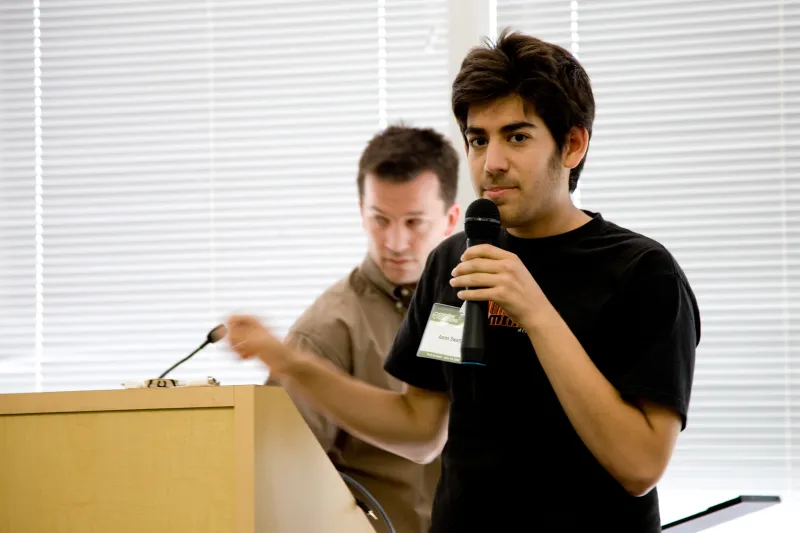To support institutions amid the COVID-19 pandemic, JSTOR, a digital library of academic resources, announced expanded access to its content. That includes more than 35,000 books available at no charge to some institutions; access to unlicensed collections for participating institutions that license some but not all JSTOR Archive and Primary Source collections; and open access to 26 public health journal archives.
JSTOR earlier announced that more than 6,000 e-books and 150 journals were also accessible without a login — leading to confusion and some criticism of JSTOR for lack of clarity — because those resources were already available before the pandemic. For supporters of open-access information, the episode brings to mind the legacy of former Stanford student Aaron Swartz, a hacker and activist who was arrested in 2011 for mass downloading JSTOR articles to share with the public. He died by suicide while awaiting trial.
JSTOR generally charges an annual subscription fee for libraries, universities and publishers to access its database of academic journals. For a large research university, that subscription can cost more than $50,000. Even institutions that have performed the research in the studies must pay the subscription fee to access it. Government-funded research, performed using taxpayer money, is also hidden behind the paywall.
“There’s a knowledge equity issue,” said Benjamin Mako Hill, an assistant professor at the University of Washington whose research focuses on collective action in online communities. “If only people that are in rich countries and wealthy universities get access to science, and no one else does, that seems unfair.”
“Is some important piece of insight lying in a place that we might not be able to see it, and will never be discovered because people can’t get access to science? I think the answer is probably yes,” he added.
After Swartz was arrested for mass-downloading JSTOR articles, he was indicted on 13 counts, including two counts of wire fraud and 11 violations of the Computer Fraud and Abuse Act. While awaiting trial, Swartz died by suicide in his Brooklyn apartment on Jan. 11, 2013, dying at age 26.
“Information is power,” Swartz wrote in 2008 in the Guerilla Open Access Manifesto. “But like all power, there are those that want to keep it for themselves … We need to take information, wherever it is stored, make copies and share them with the world.”
Swartz’s death became a rallying cry for issues of information equity and open access, according to Hill. A lot of the information that is currently open access on JSTOR became available to the public following Swartz’s death, when people released material they had from JSTOR and pressured JSTOR to make changes, Hill said.
Dubbed “The Internet’s Own Boy” in a 2014 documentary, Swartz was a fellow at Harvard University’s Safra Research Lab on Institutional Corruption, and a hacker and activist for open-source information. He enrolled at Stanford in 2004 and dropped out after his first year to join the seed accelerator Y Combinator. In 2010, he co-founded the political advocacy group Demand Progress, which seeks to “protect the democratic character of the internet.”
“I think the lesson to learn from Aaron Swartz is that he was dedicated to doing good,” said Riana Pfefferkorn, the associate director of surveillance and cybersecurity at the Stanford Center for Internet and Society. “Even with all of the external indicators of success that he achieved in his short life, he was out there to try and make the world a better place.”
Other organizations, in addition to JSTOR, are also making their content available to the public in response to the COVID-19 pandemic. For example, Scribd is opening its digital library for free for the next month, and the John Hopkins University Press is providing free access to Project MUSE, an online collection of humanities and social science research.
As JSTOR begins to reach people who would normally have not accessed articles in its database, Pfefferkorn said she hopes to see JSTOR acknowledge the ties between the current situation and what Swartz was trying to do.
“I wish that he could be here to see this and to see how various organizations are trying to help liberate information and share information in keeping with the spirit that he had around open access,” Pfefferkorn said. “The difficulty of these times is teaching us that a lot of the restrictions and denial of access that we have become accustomed to is actually not necessary. After all, we can accomplish a lot more through sharing of information and resources than we could do when everything is locked up.”
Author’s note: If you or someone you know is contemplating self harm or suicide, there are available resources both on and beyond campus that are reachable 24 hours a day, seven days a week:
National Suicide Prevention Hotline: +1 (800) 273-8255
Stanford Counseling and Psychological Services: +1 (650) 723-3785
Stanford Confidential Support Team: +1 (650) 725-9955
Contact Patricia Wei at patwei ‘at’ stanford.edu.
